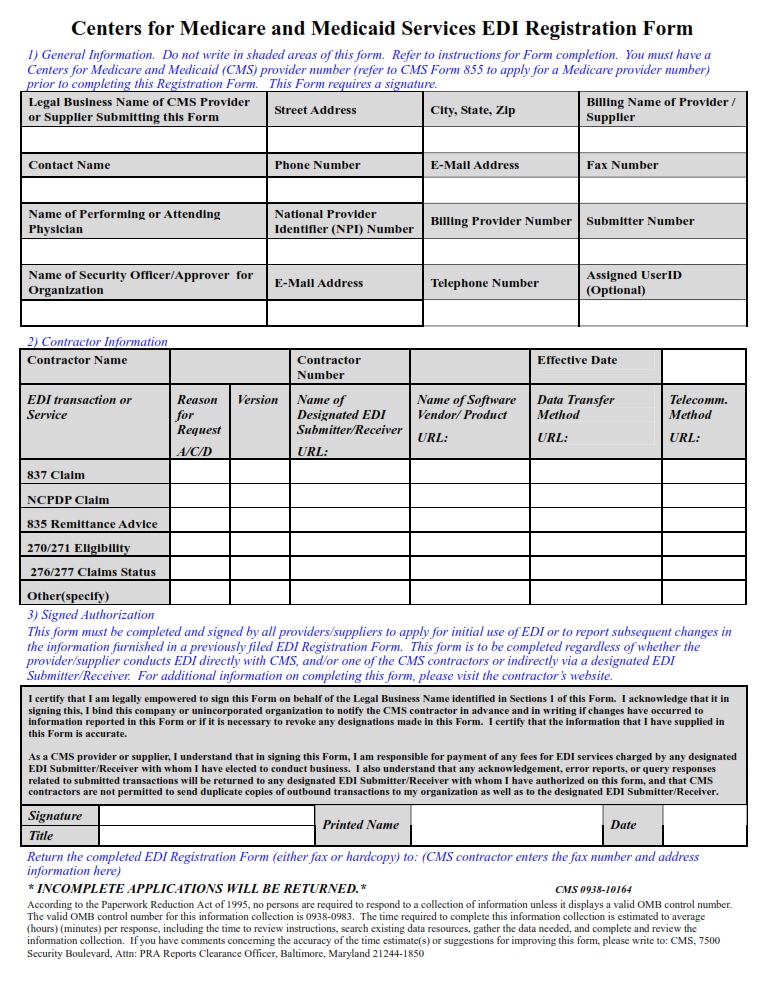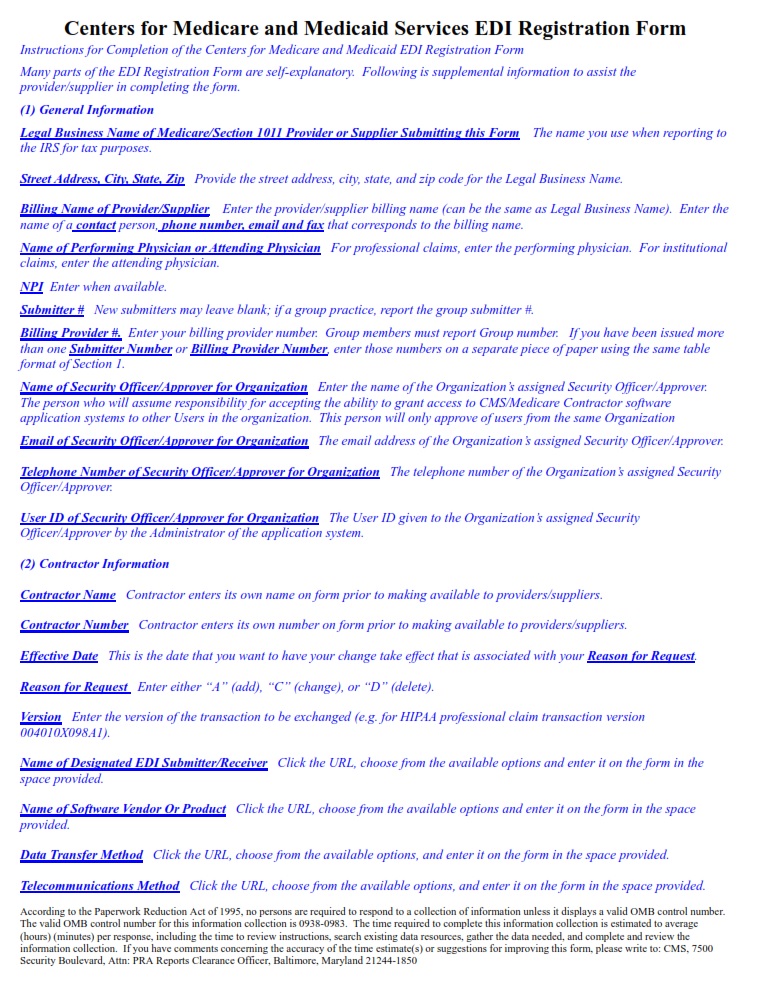CMSFORM.ORG – CMS 10164 – Centers for Medicare and Medicaid Services EDI Registration Form – In the complex world of healthcare administration, navigating the intricacies of electronic data interchange (EDI) can be a daunting task. The Centers for Medicare and Medicaid Services (CMS) plays a crucial role in this arena, setting standards and guidelines to ensure seamless communication between healthcare providers and government entities. At the heart of this digital exchange lies CMS 10164 – the EDI Registration Form that serves as the gateway to unlocking a world of efficient data transmission. Imagine delving into a realm where paperwork transforms into pixels, streamlining processes and enhancing accuracy with every keystroke. Join us on a journey through the digital corridors of CMS 10164, where opportunities for improved efficiency and compliance await those bold enough to embrace them.
Download CMS 10164 – Centers for Medicare and Medicaid Services EDI Registration Form
| Form Number | CMS 10164 – |
| Form Title | Centers for Medicare and Medicaid Services EDI Registration Form |
| Published | 2019-03-25 |
| O.M.B. | 0938-0938 |
| File Size | 121 KB |
What is a CMS 10164?
CMS 10164, also known as the Centers for Medicare and Medicaid Services EDI Registration Form, serves as a crucial tool in streamlining electronic data interchange processes within the healthcare industry. This form enables healthcare providers to register for electronic communication with CMS, facilitating efficient claims processing and information exchange. By utilizing CMS 10164, organizations can enhance their operational efficiency and ensure compliance with regulatory standards.
The significance of CMS 10164 lies in its ability to standardize communication protocols between healthcare providers and government agencies. By completing this registration form, providers can establish secure channels for transmitting important data related to patient care, billing information, and quality reporting. Embracing EDI through CMS 10164 not only improves accuracy in data exchange but also promotes timely access to critical health information that ultimately benefits both patients and healthcare providers alike.
Where Can I Find a CMS 10164?
If you’re on the hunt for a CMS 10164 form, look no further than the official Centers for Medicare and Medicaid Services (CMS) website. This essential document is crucial for electronic data interchange (EDI) registration, enabling healthcare providers to efficiently exchange data with CMS. By visiting the CMS website and navigating to the Forms section, you can easily locate and download the CMS 10164 form in a few simple clicks. It’s important to ensure that you are accessing the most up-to-date version of the form to stay compliant with current regulations and requirements.
Additionally, keep in mind that certain third-party vendors or healthcare IT platforms may also offer assistance in obtaining and submitting the CMS 10164 form. These services can streamline the process of EDI registration and provide valuable support throughout the application process. However, it’s essential to verify the legitimacy of any external sources before engaging with them to safeguard your sensitive information and ensure regulatory compliance. Stay informed, empowered, and proactive in your quest for acquiring a CMS 10164 form by leveraging both official channels and trusted service providers within the healthcare industry.
CMS 10164 – Centers for Medicare and Medicaid Services EDI Registration Form
The CMS 10164 – Centers for Medicare and Medicaid Services EDI Registration Form is a crucial document for healthcare providers seeking to streamline their billing processes. By completing this form, providers can establish electronic data interchange (EDI) capabilities, allowing for faster and more efficient submission of claims to Medicare and Medicaid. This not only expedites reimbursement but also reduces the likelihood of errors often associated with manual processing.
One key benefit of utilizing the CMS 10164 form is the enhanced security it offers. Electronic data interchange helps safeguard sensitive patient information by encrypting data transmissions, reducing the risk of potential breaches or unauthorized access. Furthermore, by embracing EDI technologies through this registration process, healthcare providers can stay up-to-date with industry standards and pave the way for future advancements in digital healthcare systems. Embracing these technologies not only benefits individual providers but also contributes to building a more resilient and responsive healthcare ecosystem as a whole.

